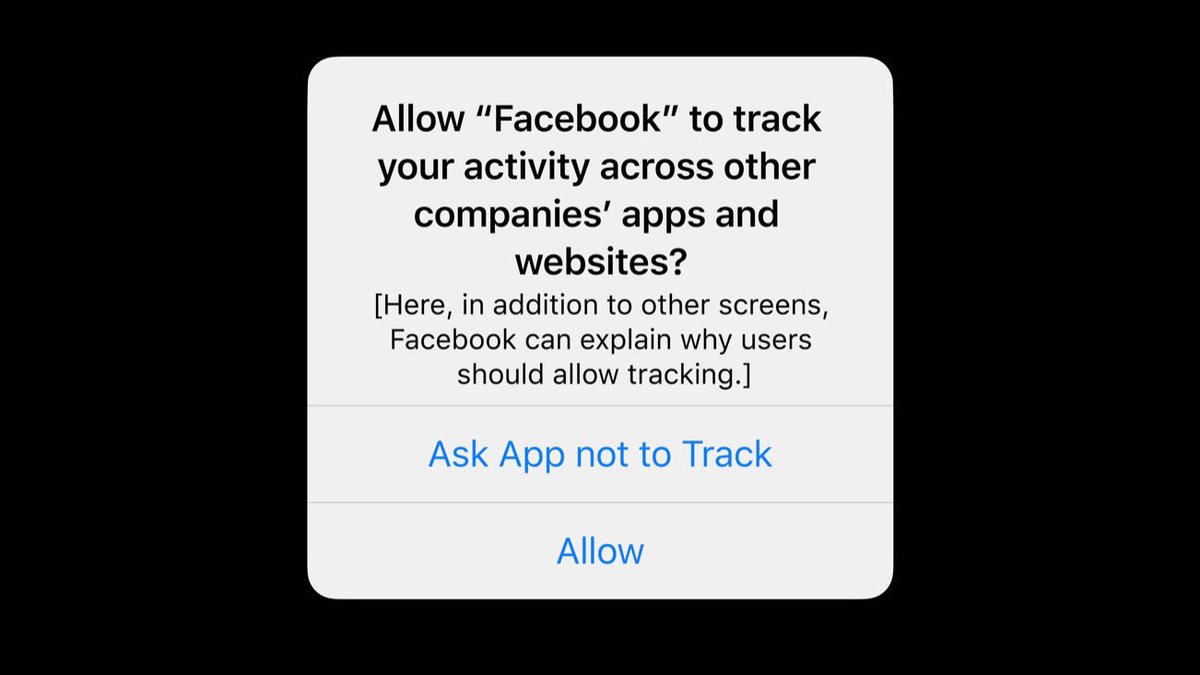No ratings yet.
“Privacy. That’s Apple. Privacy is a fundamental human right. It’s also one of our core values. Which is why we design our products and services to protect it. That’s the kind of innovation we believe in.” (Apple Inc., 2022). Every Apple user has probably heard something in line with this before and it is not necessarily a lie: with the release of iOS 14.5 in April 2021, Apple launched a new privacy feature called “App Tracking Transparency”. With this feature, Apple forces app developers to ask users for permission to “track” them, that is share your data with third parties for ad-targeting purposes. Since the release of this feature, it has proven to be a major disruptor on the global ad market – in May 2022 only 25% of users agreed with apps tracking them (Lukovitz, 2022). This disruption is causing a major impact on revenue for big players: it is estimated that in 2022 Apple’s App Tracking Transparency (ATT) feature will cost Facebook $16 billion, YouTube $2.2 billion, Snap $546 million, and Twitter $323 million (O’Flaherty, 2022). In addition, the disruption is also impacting smaller businesses and start-ups that rely on personalized marketing to acquire new customers. Because of ATT, they have seen the cost of acquiring new customers rise and have had to cut back on marketing spending (McGee, 2022). This disruption caused by Apple has required big organizations like Google (owner of YouTube) and Meta (owner of Facebook) to reevaluate their business model and find a way to get the lost revenue back and keep their shareholders happy.
Disruptive innovations are known to displace current market leaders, Google and Meta, and to see one or more new market-leading firms arise. Apple will say that the one benefitting from its anti-tracking crusade is you, the user, and, as we mentioned something similar before: this is not necessarily a lie. However, one with a business mindset and a critical view has probably seen it coming from miles away: the major benefiter is Apple itself. Appsumer reports that between the second quarter of 2021 (after the release of ATT) and the second quarter of 2022, Apple Search Ads (ASA) – Apple’s platform for selling advertisement space to advertisers – has experienced a major boost. Advertisers’ adoption of ASA grew by 4% to 94.8%, while that of Meta and Google decreased by respectively 3% and 1.7% to 82.8% and 94.8% (McCartney, 2022). Perhaps more interesting, are the changes that occurred in advertisers’ share-of-wallet (SOW). ASA’s SOW increased by 5% to 15%, while Meta’s SOW dropped by 4% to 28% and Google’s stayed the same at 34% (McCartney, 2022).
Apple has used the ATT feature very cleverly as a first hit in challenging the duopoly Google and Meta in the advertising market. While Apple is expected to make an almost negligible $5 billion in ad revenue in 2022 compared to Google ($209 billion) and Meta ($115 billion) (Kachalova, 2022), this difference is most definitely to slink in the coming years. Google and Meta are slowly adjusting to the reality because they know: Apple wants a share and will go to extreme measures to get it and with Apple’s strong ecosystem and large userbase, there is very little they can do about it.
Apple Inc. (2022). Privacy. Accessed on October 2022, van Apple.com: https://www.apple.com/privacy/
Kachalova, E. (2022, October 3). Big Tech owes you money. Find out how much. Accessed on October 2022, van AdGuard: https://adguard.com/en/blog/personal-data-cost-money.html
Lukovitz, K. (2022, May 5). Privacy Update: ATT IDFA Opt-In Rate At 25% Overall, But Varies By Vertical. Accessed on October 11, 2022, van Mediapost: https://www.mediapost.com/publications/article/373613/privacy-update-att-idfa-opt-in-rate-at-25-overal.html
McCartney, J. (2022, September 6). Appsumer Report: Apple Privacy Measures Provides a Boost for Apple Search Ads and Favors Large Advertisers. Accessed on October 2022, van Business Wire: https://www.businesswire.com/news/home/20220906005427/en/Appsumer-Report-Apple-Privacy-Measures-Provides-a-Boost-for-Apple-Search-Ads-and-Favors-Large-Advertisers
McGee, P. (2022, August 9). Small businesses count cost of Apple’s privacy changes. Accessed on October 2022, van Ars Technica: https://arstechnica.com/gadgets/2022/08/small-businesses-count-cost-of-apples-privacy-changes/
O’Flaherty, K. (2022, April 23). Apple’s Privacy Features Will Cost Facebook $12 Billion. Accessed on October 2022, van Forbes: https://www.forbes.com/sites/kateoflahertyuk/2022/04/23/apple-just-issued-stunning-12-billion-blow-to-facebook/?sh=58eb37031907



